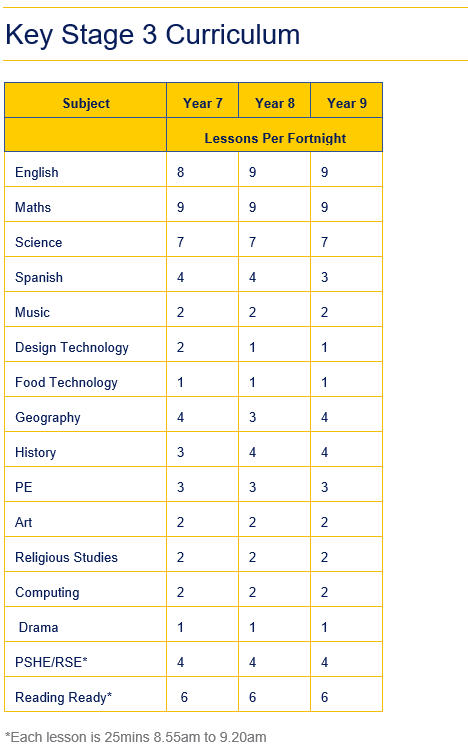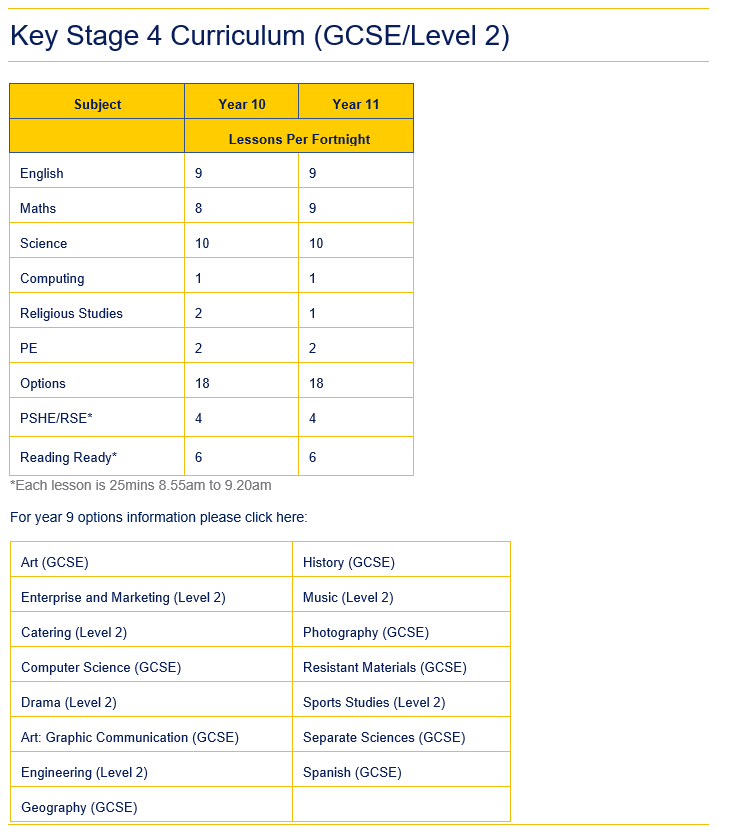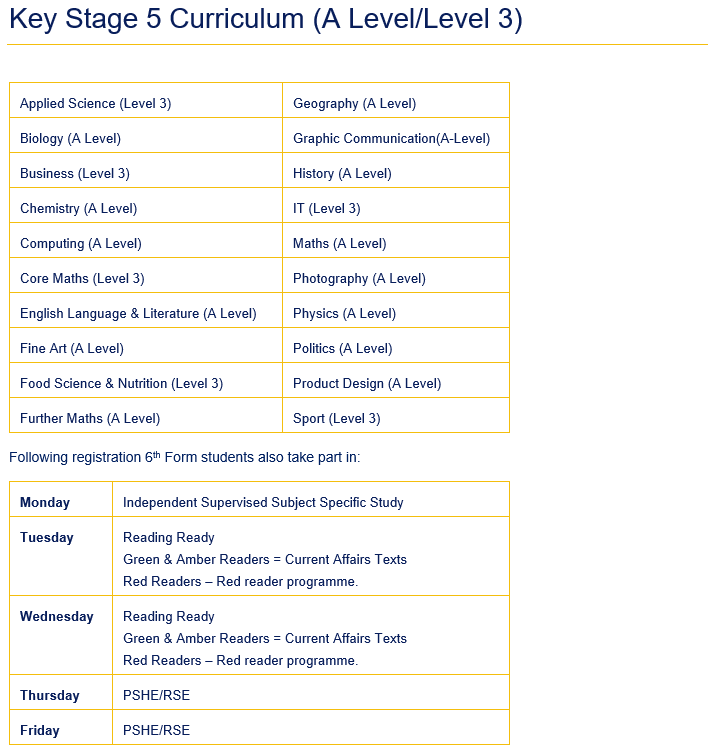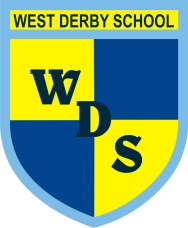Curriculum Design
WEST DERBY SCHOOL CURRICULUM STATEMENT
West Derby School provides opportunities, encouragement and guidance to enable all our pupils to develop their abilities and achieve their potential within a safe and secure learning environment. Our inclusive curriculum reflects the high aspirations we have for all our students. It is designed to be as ambitious as the National Curriculum, whilst being responsive to the individual needs of our students accounting for the community we serve. Alongside encouraging students to deepen their knowledge by embedding regular retrieval and review opportunities, our curriculum is interleaved. This builds firm foundations for our students to progress to the next level of their learning.
West Derby School is proud to promote and support the personal growth of its students towards physical, intellectual, emotional and spiritual maturity within an academically stimulating and pastorally supportive environment. We recognise that we are preparing our students to live in a rapidly changing world where the skills of independence and resilience, and the acquirement of cultural capital, will be key to their future success in becoming global citizens.
INTENT
We want our students to be challenged to think about why they are learning and what they are learning for their academic, social and economic success.
Our curriculum offers all students:
• the opportunity to pursue a journey of learning that begins by addressing any gaps in their knowledge as they transition from year 6 to year 7 and proceeds in a sequenced manner to secure substantiative knowledge that maximises their potential to form robust schema to best enable future learning at KS3, 4, 5 and beyond.
• the opportunity to engage in learning that is deep, reflective, broad, balanced, and inclusive throughout the key stages.
• personalised support and guidance to address any misconceptions or gaps in their learning, many of which may have arisen because of missed in-class learning because of the Covid-19 pandemic.
• the skills to become strong readers and readers for pleasure, so that they can independently increase both their cultural capital and economic awareness outside of the classroom.
• opportunities to develop life skills to make informed decisions relating to their educational and career pathways, so that they possess the secure knowledge and understanding required to progress with certainty to the next stages of their education, and into the worlds of work, apprenticeships or higher education.
• access to a range of enrichment opportunities to enable them to become responsible citizens who can make a positive and creative contribution to society.
• a sharp focus on the development of their relationships and sex education, moral, spiritual, social and cultural understanding so they are well prepared for life in modern Britain.
• a planned programme of RSE lessons to equip them with essential skills for building positive, enjoyable, respectful and non-exploitive relationships and for staying safe both on and offline.
• access to our sixth form; we not only look at a students’ academic performance at GCSE, but also their attitudes, aspirations and ambitions. Information about the nature of the sixth form offer is published annually following consultation with our Year 11 students.
Our curriculum offers all students with special educational needs and disabilities the tools to access the full curriculum confidently and successfully alongside their peers. Information on our SEND and Equality policies can be found here.
IMPLEMENTATION
West Derby School teachers draw upon their training, and strength of subject knowledge, when planning their subject curriculums. This ensures that students’ learning is broken down into sequenced, achievable components that build upon prior understanding, allowing all students to embed and retrieve knowledge confidently when required.
The West Derby School curriculum begins with the year 6-7 transition programme. Transition activities are set for upcoming year 6 students to allow them to share their passions, skills, interests, and to allow us to strengthen our understanding of our future students. We gather a range of information from our feeder primary schools to help us review and build our curriculum offer.
Subject leaders play a pivotal role in the success of the curriculum by linking content within their own disciplines to that of learning to subjects across the curriculum. Along with senior leadership they lead a regular programme of monitoring, evaluation and review. The curriculum is structured around a three-year key stage 3 and two-year key stage 4, followed by a sixth form curriculum offer that is planned to meet the academic, pastoral and career needs of West Derby School students. Students follow the National Curriculum with a strong emphasis on understanding and the development of knowledge and skills within relatable and unfamiliar contexts.
All subjects approach their teaching and learning through the application of the Common Lesson Format. This is a research-based development rooted in Rosenshine’s Principles of Instruction. Teaching and learning are further enhanced through the employment of the Magenta Principles, which are embedded in the delivery of the curriculum throughout the key stages. These principles push students to think deeply, speak confidently and demonstrate understanding with clarity and precision. Students are required to ‘Connect, Change, Classify, Compare, Reduce, Assemble, arrange’ knowledge so that it can become embedded in the long-term memory and can be recalled when necessary. Lessons are differentiated carefully to ensure that all students particularly those with special educational needs and disabilities make progress in line with their peers.
Our Sixth Form offers a wide range of academic and vocational qualifications across multiple subject disciplines. We use our expertise, and local and national contacts to build positive links for our learners, to ensure that they are ‘career ready’ both in terms of their academic qualifications and their attitudes and values. Each year, our Year 12 students embark upon a work experience programme. We have a strong tradition of preparing students for both a university or apprenticeship route, by offering lessons at key stage 5 that naturally progress from and shares the same fundamental principles for learning that underpin our key stage 3 and 4 curriculums. Above all, we work tirelessly as staff to develop their independence and aspirations, through a diverse enrichment, and PSHE programme, so that they will know how to make a positive contribution to their community and the wider society.
The following shows the curriculum allocation outline of each subject area:



Assessment:
On arrival to West Derby School students are assessed using Cognitive Ability Tests (CAT4). These assessments allow us to identify students’ strengths and areas for improvement. Subject leaders also baseline assess students in a range of ways to identify their starting points and aspects of prior knowledge that may need to be addressed before embarking on aspects of the KS3 curriculum.
Assessments take place in a number of ways. Students complete written, electronic and/or practical summative assessments once per term. Teachers provide students with a revision programme of activities to prepare for these summative assessments. They will assess the knowledge learned that term, the previous term and specific prior knowledge that underpins the key learning objectives. Students will receive a score for this assessment which is then shared with parents/carers. Teachers complete a question level analysis following each key assessment point which then informs future planning by addressing insecure knowledge, so that students do not carry forward misconceptions. Throughout the term teachers also set regular formative progress tasks designed to identify gaps in understanding. Teachers will mark these in detail providing formative feedback to which students reply by uplevelling their work.
Students in Years 11, 12 and 13 undergo mock examinations to help them to prepare for the demands of external examinations. These take place in November and March. Mock examinations complement the formative assessment teachers use on a daily basis. All students with special educational needs and disabilities are provided with the support they need to successfully complete their assessments in line with their peers. This support is provided from year 7 through to year 13.
Other formative assessment approaches such as on the bell, low stakes quizzes, retrieval practice homework, higher order and diagnostic questioning are part and parcel of our teaching and learning common lesson format. Formative assessment approaches provide timely and insightful feedback on students’ current knowledge and understanding. They are an essential tool applied by West Derby teachers.
Where students are significantly below age-related expectations, the core disciplines of Reading, English and Mathematics support will be prioritised until they have “closed the gap”. The identification of students who will benefit from such a strategy will commence during the primary school transition programme and will be supplemented with baseline testing once the student has joined the school. We will use specific government funding to focus our support on those who need it most. A priority will be the provision of catch-up opportunities in Reading, English and Mathematics, where it is identified that a need is present. Additional targeted strategies in order to raise aspirations will be employed across individual departments. We have also been fortunate to secure funding through the National Tutoring Programme. Our Academic Mentors work with the humanities and science subjects to close the knowledge gap widened during the pandemic.
IMPACT
The innovative practice across the school provides a strong foundation and opportunities for all children to work collaboratively and develop academic and social skills. This has led to strong outcomes for students who are in education, employment and training.
As a result of our strong curriculum our students:
• prepare for all aspects of life whilst at school and when they leave
• foster a life-long love of learning
• can demonstrate high written and spoken standards of literacy, numeracy and communication
• can stimulate creativity, confidence and independence
• demonstrate their ability to become well rounded and responsible citizens
• develop moral values which encourage both personal and social responsibility.
Students can access a range of providers such as: Higher Education (including Russell Group universities); further education; high quality apprenticeships and further employment and/or training. 64% of students go on to a university of their choice and we remain well above the national average for acceptance offers. For further information regarding destinations, careers and success rates in Sixth Form, please click here.
Curriculum Review:
• The efficacy of curriculum implementation will be regularly reviewed during departmental meetings as a standing agenda, and quality assured through the line management agenda, learning walks and lesson observations.
• The curriculum content delivered in each subject will reviewed annually by subject leaders to ensure the sequence of delivery allows students to build on their knowledge and that students are sufficiently stretched and challenged, and that SEND, and vulnerable students are afforded the same learning opportunities as their peers.
• The curriculum hours and subjects offered will be analysed by the senior leadership team and trustees on an annual basis.
• The Junior Leadership Team will discuss curriculum content and delivery at their meetings each half-term. This will be fed back to the SLT and staff.
• Parent/carer views are sought at regular points throughout the academic year. This feedback is considered, and adaptations made to the curriculum where appropriate.
To find out more about our curriculum please contact Mrs. S. Wilkinson Deputy Head at the school.









